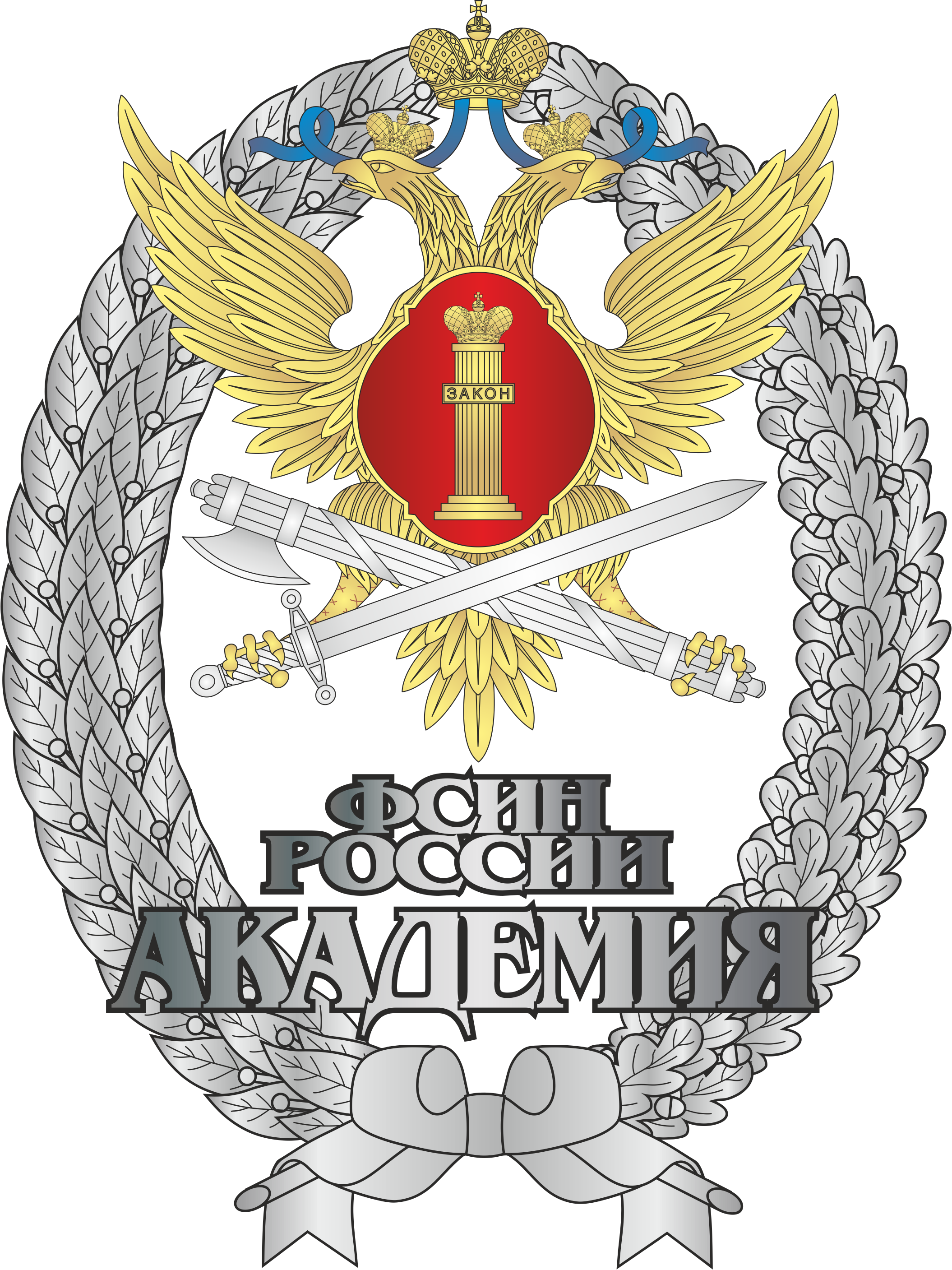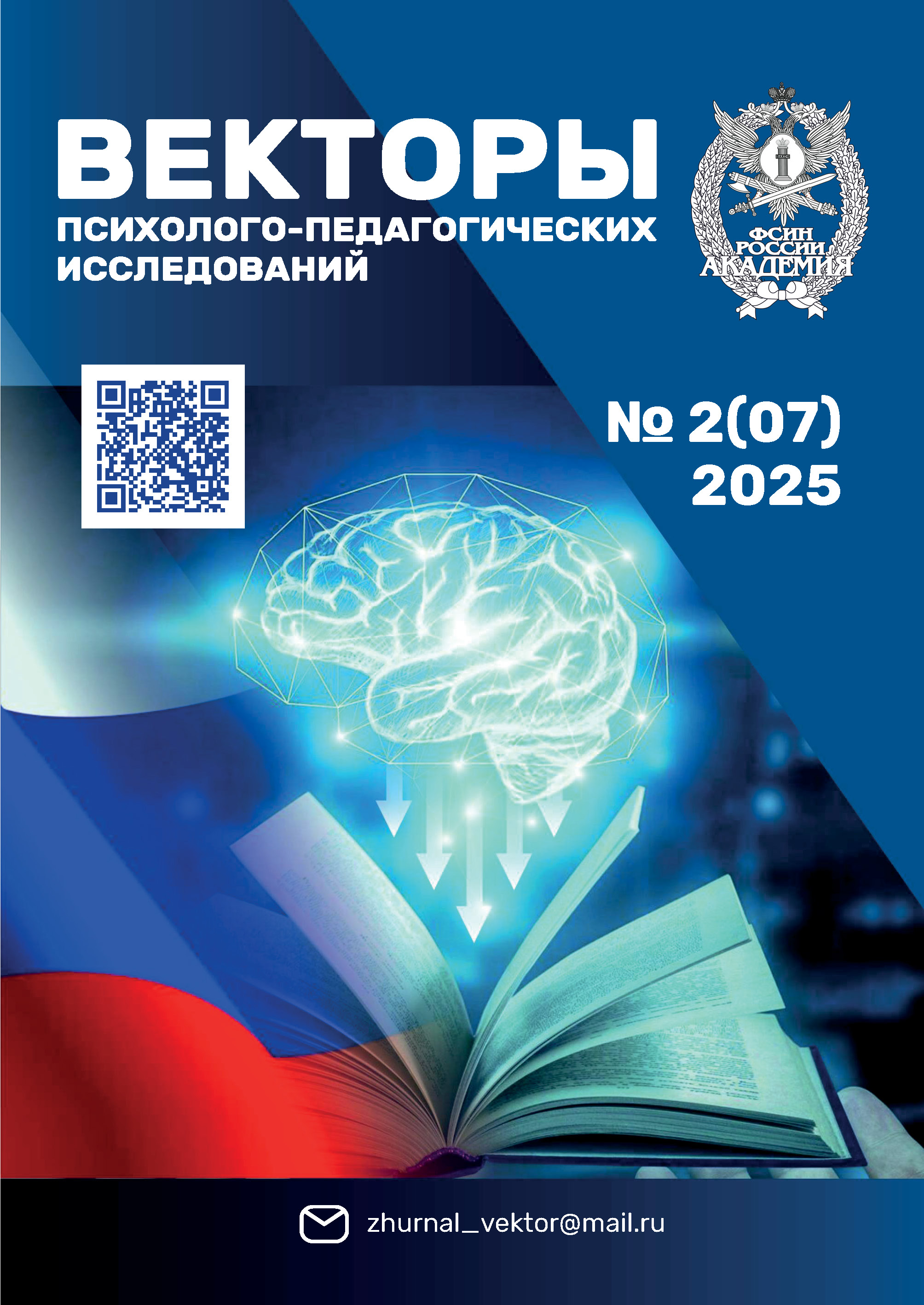Ryazan, Russian Federation
Ryazan', Orel, Russian Federation
UDC 37.015.31
The article is devoted to the issue of the use of microqualifications as a form of additional education, including the specifics of the functioning of this process in universities of law enforcement agencies. The priority of informal learning, which eliminates the skills deficit among specialists with both higher and secondary vocational education, is shown. The main function of additional professional education is argued to be the renewal of the intellectual potential of society through the introduction of innovative achievements. It is clarified that recently the need for microqualifications among young people has increased significantly even before receiving a basic diploma, whereas previously adults received additional education while undergoing advanced training or retraining. There is a contradiction between the desire of the supplementary education system to introduce modern information technologies, including artificial intelligence products, and the imperfection of the regulatory framework, the lack of universal teaching methods, and the unwillingness of the teaching staff. The contradiction leads to the need to reform the entire current system of higher education. The possibilities of hybrid and autonomous learning as a basic platform for microqualifications are analyzed. The modern problems of additional education are considered, the advantages of microqualifications in comparison with the traditional model of education, and the financial benefits of organizing such courses for universities are highlighted. The relevance of obtaining microqualifications is being clarified not only for young people, but also for established professionals who want to obtain additional qualifications in their field, or a completely new one. Examples of demanded microqualifications are given. The leading role of artificial intelligence for the content of training programs and innovative technologies for building the educational process is outlined.
informatization, microqualification, hybrid training, innovative technologies, higher education, additional education, continuing education, universities of law enforcement agencies, cadets, artificial intelligence
1. Ermakova Yu. D., Kapustina L. V., Ermakov A. K. Mikrokvalifikacii kak effektivnyy komponent realizacii professional'noy podgotovki studentov tehnicheskih special'nostey // Nauchno-metodicheskiy elektronnyy zhurnal «Koncept». 2024. № 12. S. 325–336.
2. Notova S. V., Podosenova I. A. Sistema DPO kak osnova nepreryvnogo professional'nogo obrazovaniya // Vysshee obrazovanie v Rossii. 2021. T. 30, № 8-9. S. 134–143.
3. Kolesnikova O. A., Maslova E. V., Okolelyh I. V. Kadrovyy ballast, ili Pochemu sistema vysshego obrazovaniya ne uspevaet za transformaciey rynka truda // Social'no-trudovye issledovaniya. 2023. T. 52, № 3. S. 153–164.
4. Korshunov A. I., Tyunin A. M., Shirkova N. N., Miroshnikov M. S., Frolova O. A. Kak uchatsya vzroslye: faktory vybora obrazovatel'nyh programm // Monitoring obschestvennogo mneniya: ekonomicheskie i social'nye peremeny. 2021. № 2. S. 286–314.
5. Elistratova N. N. Gibridnoe obuchenie kak innovacionnaya obrazovatel'naya tehnologiya // Nedelya rossiyskoy nauki v Ryazanskom filiale Moskovskogo universiteta MVD Rossii imeni V. Ya. Kikotya : sb. nauch. tr. Vseros. nauch.-prakt. konf. (Ryazan', 1–8 fevralya 2024 g.). Ryazan', 2024. S. 42–44.
6. Ambarova P. A., Zborovskiy G. E. Nauchno-pedagogicheskoe soobschestvo v rossiyskih vuzah v usloviyah osuschestvleniya programmy «Prioritet-2030»: problemy i perspektivy // Vysshee obrazovanie v Rossii, 2022. № 31(1). S. 59−71.
7. Irhin V. N., Irhina I. V., Sobyanin F. I., Kravec A. O. Problemy i perspektivy razvitiya sistemy dopolnitel'nogo professional'nogo obrazovaniya nauchno- pedagogicheskih kadrov vuzov Rossii // Voprosy zhurnalistiki, pedagogiki, yazykoznaniya. 2023. T 42, № 2. S. 242–251.
8. Yanovskaya G. A. Sovremennoe sostoyanie i problemy razvitiya dopolnitel'nogo obrazovaniya // Nauchno-pedagogicheskoe obozrenie. 2024. Vyp. 1(53). S. 17–24.
9. Bogoudinova R. Z., Loginova R. M. Transformaciya sistemy dopolnitel'nogo professional'nogo obrazovaniya pedagogov v kontekste nacional'nogo proekta «Obrazovanie» // Biznes. Obrazovanie. Pravo. 2023. № 2(63). S. 363–367.
10. Svetun'kova A. K. Neyronnoe delo: kak II pomogaet v bor'be s prestupnost'yu // Izvestiya. 10.09.2023: sayt. URL: https://iz.ru/1569903/alena-svetunkova/neironnoe-delo-kak- ii-pomogaet-v-borbe-s-prestupnostiu (data obrascheniya: 01.02.2025).
11. Mironenko E. S. Dopolnitel'noe professional'noe obrazovanie v sovremennoy Rossii: problemy i tendencii razvitiya // Obrazovanie i pravo. 2022. № 3. URL: https://cyberleninka.ru/ar ticle/n/dopolnitelnoe-professionalnoe-obrazovanie-v- sovremennoy-rossii-problemy-i-tendentsii-razvitiya/viewer (data obrascheniya: 03.02.2025)
12. Ternikov A. A., Blyaher M. L. Spros na znaniya, umeniya i navyki v vakansiyah: kogo gotovit universitet? // Mir Rossii. 2023. T. 32, № 2. S. 74–96.











